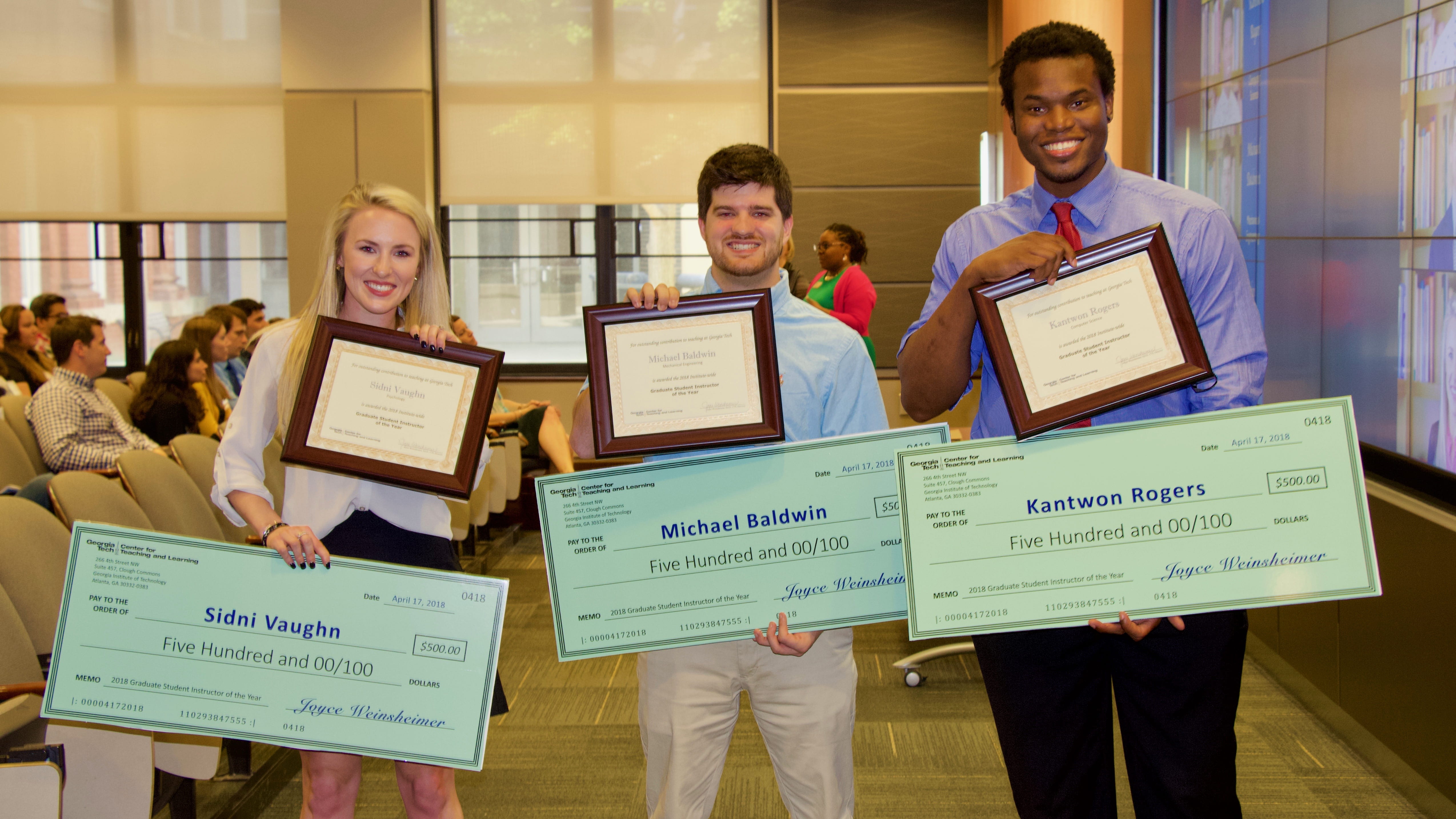International Community: Teaching and Learning at Georgia Tech-Europe

Atlanta, Georgia, to Metz, France.
Laura Carruth, executive director of the Center and associate vice provost of transformative teaching and learning, and Kate Williams, senior academic professional within the Center and Quality Enhancement Plan faculty co-director, landed in Metz, France, earlier this month. Their goal? To support the Georgia Tech-Europe (GTE) community and foster international connections in teaching and learning.
Carruth and Williams were invited to the Metz campus by Paul Voss, the director of academics and dean of students representative for Georgia Tech-Europe. Voss hoped to provide additional support to GTE faculty through the visit, showcasing the Center as a resource for all Tech faculty and identifying some of the unique challenges and opportunities faced by Georgia Tech-Europe instructors.
A Unique Learning Environment
Carruth and Williams quickly got to work, holding a total of 28 one-on-one faculty interviews over the span of a few days. They met with GTE leadership, including Voss and GTE President Abdallah Ougazzaden, to learn more about the campus vision and needs.
 Carruth and Williams identified distinctive elements to the Georgia Tech-Europe learning environment. For starters, most students are only at GTE for a portion of their academic career before heading back to their home campus. The student body consists of a mix of study abroad students, such as those in Tech’s First-Year Semester Abroad (FYSA) program, and international graduate students, often from partner institutions. Students come to the classroom with diverse experiences, background knowledge, and educational histories. Instructors like Sonia Serafin from the School of Modern Languages promote a sense of community and engagement for students. Serafin established the Leonardo Program at Georgia Tech-Europe, which introduces students to an array of French cultural experiences.
Carruth and Williams identified distinctive elements to the Georgia Tech-Europe learning environment. For starters, most students are only at GTE for a portion of their academic career before heading back to their home campus. The student body consists of a mix of study abroad students, such as those in Tech’s First-Year Semester Abroad (FYSA) program, and international graduate students, often from partner institutions. Students come to the classroom with diverse experiences, background knowledge, and educational histories. Instructors like Sonia Serafin from the School of Modern Languages promote a sense of community and engagement for students. Serafin established the Leonardo Program at Georgia Tech-Europe, which introduces students to an array of French cultural experiences.
GTE faculty work with smaller class sizes than those on the Atlanta campus, providing increased opportunities for engagement and support. This is especially important for a student body that travels frequently. Nico Declercq, professor of Mechanical Engineering, noted that GTE students “combine many things and can handle the travel and still be able to excel in their classes and research.”
Common Challenges
While Georgia Tech-Europe is unique in many ways, instructors also expressed several challenges in common with their Atlanta peers. Just like their Atlanta colleagues, GTE faculty want to explore the most modern and engaging teaching approaches. They face questions surrounding AI usage and ethics and their students struggle with motivation and technology distractions. Many faculty expressed an interest in using Canvas tools to streamline grading and other processes.
Universal Solutions
Carruth and Williams developed a workshop addressing these findings. While GTE’s learning environment is unique, “engaged teaching strategies allow faculty to address these common teaching challenges and really capitalize on the unique learning opportunity that GTE provides,” said Williams.
The workshop began with a summary of the interview results, reassuring faculty that their concerns were shared by colleagues on both the Metz and Atlanta campuses. Carruth then led a session on Small Teaching, based on James Lang’s book Small Teaching: Everyday Lessons from the Science of Learning. Pulling from her background in neuroscience, Carruth discussed brief classroom and course design interventions that can address student motivation and distraction and promote continuous cognitive engagement.
Williams then led a session on Transformative Teaching and Learning (TTL), part of Georgia Tech’s strategic initiative to prepare students to be globally-engaged leaders. Through transformative classroom experiences, community connections, high impact practices, and experiential learning, faculty can equip their students to define and solve problems to improve the human condition. For students studying abroad, TTL can have an even greater impact as students connect with a new country and culture. Williams also discussed the Institute’s Quality Enhancement Plan, outlining the plan itself and opportunities for GTE faculty to engage in various elements of the new educational program being proposed.
Meaningful Learning for All
To close the workshop, Carruth and Williams shared Center resources with GTE faculty, including Canvas support, asynchronous or online workshops and book clubs, and ways to schedule CTL consultations. Carruth’s and Williams’ visit brought “outstanding value in the area of pedagogy and evidence-based learning practices to our campus,” said Tim Stoneman, GTE lecturer in the School of History and Sociology.
“The Center exists to foster meaningful learning, effective instruction, and excellent teaching for all Georgia Tech students and faculty. That’s true regardless of whether they’re in Atlanta, Georgia, or Metz, France,” said Carruth.




